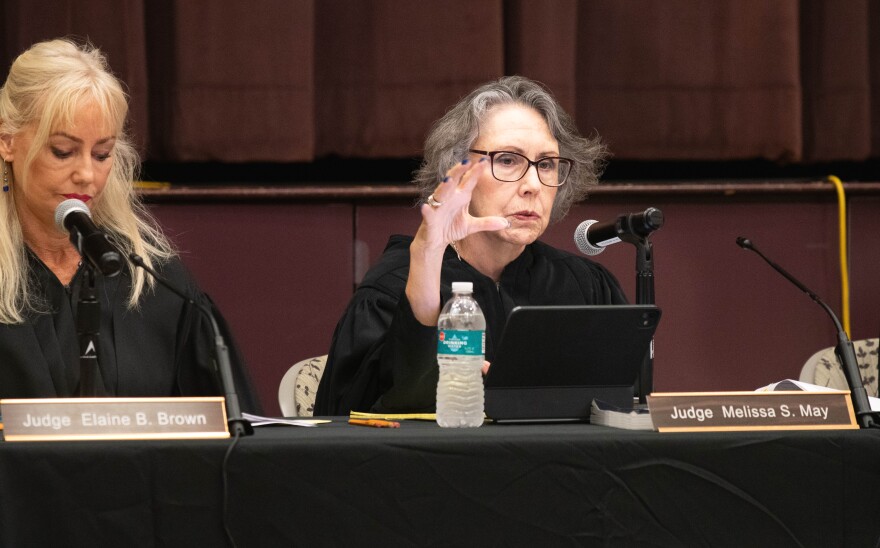
September 17 is Constitution Day in the US — the day the constitution was finalized in 1787.
The University of Evansville (UE) observed this by hosting Appeals on Wheels where actual Indiana Appellate Court proceedings were held on campus.
Attendees of Appeals on Wheels heard oral arguments from the defendant’s attorney and the attorney representing the state.
He opened with this argument: “Under the state constitution under the Fourth Amendment, the Supreme Court The United States has said that if probable cause justifies the search of a lawfully stopped vehicle, it justifies the search of every part of the vehicle and its contents that may conceal the object of the search.”
The case of Young v. The State of Indiana is an actual appeals case involving a drug charge stemming from a warrantless search of a vehicle.
The defendant was stopped, and a drug sniffing dog "hit" on his vehicle. A significant amount of drug paraphernalia was found. There was also an open warrant on Young.
Three appellate judges asked the attorneys representing the defense and the state follow up questions.
“So how long does it actually take to get a search warrant in this day and age? I mean, why not get a warrant? Why not just have one of the officers call the judge that's on call.”

UE Political Science Professor Robert Dion was one of the sponsoring faculty members.
“Students, whether they're in the business school or whether they're in criminal justice, learn about search and seizure and Fourth Amendment rights,” he said. “So that was a particularly good case for them to see in person and hear the different arguments from the two sides.”
Following the two 20-minute oral arguments a Q&A session was held where attendees asked the judges questions — just not over the case itself.
The Court of Appeals will take up to a year to decide this case. This is the first time in six years Appeals on Wheels has been held at UE.
Dion says Appeals on Wheels has visited all 92 Indiana counties.
“It's a way to get the judicial system in front of people and help it make it more transparent and make it more understandable, more accessible, so that people can understand what the rule of law is all about.”
In Indiana, the State Supreme Court is the final word on cases. In some states, such as West Virginia, the Court of Appeals is the “supreme” court.
Support independent journalism today. You rely on WNIN to stay informed, and we depend on you to make our work possible. Give to grow our local reporting today. Donate

